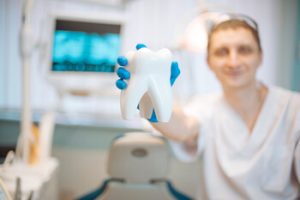Experiencing a toothache can be more than just an uncomfortable inconvenience; it’s a signal from your body that something is amiss in your oral ecosystem. Tooth pain can vary widely, from a slight nuisance to an overwhelming discomfort that impacts your daily life. This comprehensive guide delves into the multifaceted world of toothaches, exploring what causes toothache, symptoms, and effective management strategies.
Common Causes of Tooth Pain
Delving deeper into oral health, it’s essential to understand the various factors contributing to tooth pain. This section aims to shed light on these common causes, offering insights into how they develop and the discomfort they cause. Individuals can better recognise symptoms and seek timely dental care by staying informed.
Tooth Decay: The Invisible Culprit

Infected Tooth: A Deeper Problem
An infected or abscessed tooth represents a more severe condition that causes intense pain and poses a risk of spreading the infection. This situation arises when bacteria penetrate the enamel and reach the inner pulp. The infection can lead to pus at the tooth’s root, known as an abscess, often accompanied by swelling and severe pain. Treatment usually involves root canal therapy or, in some cases, extraction of the affected tooth.
Gum Disease: Beyond the Teeth
Periodontal disease, usually known as gum disease, is another major contributor to tooth pain. It begins with gingivitis, characterised by red, swollen, and bleeding gums, and can progress to more severe forms affecting the bone and tissues supporting the teeth. Advanced gum disease can lead to pain in the upper teeth and other areas, making even routine activities like chewing uncomfortable. Regular dental appointments and good dental hygiene practices are key to preventing and managing gum disease.
Wisdom Teeth: The Troublesome Late Arrivals
Wisdom teeth, or the third set of molars, typically emerge during late adolescence or early adulthood. When these teeth become impacted – unable to emerge or grow incorrectly fully – they can cause significant discomfort. This pain can manifest in the back of the mouth and occasionally radiate to other areas. In some cases, surgical removal of the wisdom teeth is necessary to alleviate the pain and prevent further complications.
Broken or Cracked Tooth: A Direct Route to Pain
A broken or cracked tooth is a direct and immediate cause of tooth pain. Such damage can expose the sensitive inner layers of the tooth, leading to sharp, sudden pain, especially when the tooth is subjected to the pressure of chewing or exposed to extreme temperatures. Immediate dental attention is essential for a broken or cracked tooth, as leaving it untreated can lead to more serious complications.
Managing Tooth Pain
Navigating through the discomfort of tooth pain requires a multifaceted approach, blending immediate methods of tooth pain relief with long-term dental care strategies. This section offers an in-depth look into managing tooth pain effectively.
Professional Dental Treatment: The Cornerstone of Pain Management
The first and most crucial step in managing tooth pain is seeking professional dental treatment. This method targets the root cause of the pain, be it tooth decay, an infected tooth, or a broken tooth.
- Root Canal Treatment: A root canal treatment can be a lifesaving procedure for an infected tooth. This involves removing the infected pulp, thus alleviating pain and saving the tooth.
- Fillings and Crowns: For cavities resulting from tooth decay, fillings are used to restore the tooth’s integrity. In cases of extensive decay, crowns may be necessary.
- Extraction: In some severe cases, such as with an extensively damaged tooth or problematic wisdom teeth, extraction may be the best course of action.
Temporary Pain Relief Methods: Bridging the Gap
While awaiting dental treatment, several methods exist to alleviate tooth pain temporarily.
- Over-the-Counter Pain Relievers: Medications like ibuprofen can temporarily relieve dental pain. However, they should be used judiciously and as per the recommended dosage.
- Fluoride Toothpaste: For sensitivity caused by minor dental issues, fluoride toothpaste designed for sensitive teeth can provide relief.
- Home Remedies: Sometimes, simple home remedies like rinsing with warm salt water can relieve mild toothache. These are particularly useful for pain associated with gum tissue inflammation.
A Guide to Proactive Preventive Dental Care
Taking a proactive approach to oral health is the most effective way to prevent tooth pain and maintain overall oral well-being. This article explores practical steps and strategies to keep dental issues at bay.
Regular Dental Check-Ups: Essential for Early Detection
Consistent dental check-ups are a cornerstone of preventive dental care. These visits are beyond formalities and critical opportunities for dentists to spot and address potential problems early on.
Early Detection and Prevention: Regular check-ups help identify issues like tooth decay or early signs of gum disease before they develop into more complex conditions.
Professional Cleaning: These visits also typically include a thorough cleaning, where dentists can remove plaque and tartar build-up – culprits often responsible for tooth decay and gum disease.
Oral Hygiene Practices: Daily Defence Against Dental Problems
Maintaining a diligent oral hygiene routine is your daily defence against dental problems.
Brushing and Flossing: Brushing regularly with fluoride toothpaste, combined with daily flossing, is fundamental in preventing plaque build-up, the primary cause of tooth decay and gum disease.
Daily Oral Hygiene: The Foundation of Dental Health
Consistent and proper oral hygiene practices prevent tooth decay and gum disease.

Flossing Regularly: Flossing once a day helps to remove food particles and plaque between teeth areas where a toothbrush can’t reach.
Mouthwash for Extra Protection: Using an antibacterial mouthwash can help decrease bacteria that cause plaque and gum disease.
Addressing Specific Issues: Grinding and Clenching
Teeth grinding (bruxism) can cause tooth damage, contributing to toothache and other dental problems.
Stress Management: Often, teeth grinding is stress-related. Managing stress through relaxation techniques or counselling can be beneficial.
Protective Mouthguards: Wearing a mouthguard at night can prevent damage caused by grinding during sleep.
Regular Replacement of Dental Tools
Old or worn-out toothbrushes can be ineffective and may harbour harmful bacteria. Replacing your toothbrush every three to four months, or sooner if the bristles are damaged, is recommended.
Hydration: A Simple Yet Effective Tool
Staying well-hydrated helps maintain saliva flow, crucial in washing away food particles and neutralising harmful acids.
When to See a Dentist?
Understanding when to seek professional dental care is crucial in maintaining oral health and preventing minor issues from escalating into serious problems. This section delves into various scenarios and symptoms that warrant a visit to the dentist.
Persistent Tooth Pain: A Red Flag
Persistent or recurring tooth pain is a clear signal that something is amiss. Whether it’s a dull or sharp pain, if the discomfort lasts more than a couple of days, it’s important to consult a dentist.
- Throbbing Pain: This type of pain can indicate an infection or abscess.
- Sensitivity to Hot and Cold: Prolonged sensitivity can signify tooth decay or gum recession.
Recognising and Acting on Early Signs of Gum Disease
Noticing swelling, redness, or bleeding in your gums, particularly during your daily brushing or flossing routine, is a situation that warrants your attention. These symptoms are often the early warnings of gum disease, a condition that, if neglected, can escalate into more severe problems like periodontal disease.
Ignoring these signs can lead to advanced gum issues, potentially affecting your oral health and overall well-being. Addressing these symptoms early with your dentist can prevent further deterioration and ensure the long-term health of your gums and teeth.
Unexplained Tooth Loss
Adult teeth should last a lifetime with proper care. If a tooth becomes loose or falls out without apparent cause, seeing a dentist immediately is essential, as this could be a sign of underlying dental problems.
Jaw Pain or Difficulty Chewing
Jaw pain, difficulty opening or closing the mouth, or discomfort while chewing can be symptoms of temporomandibular joint disorders (TMJ), teeth grinding, or other dental issues.
Chronic Bad Breath or Unpleasant Taste
Persistent bad breath or a lingering bad taste in the mouth can indicate dental problems like gum disease, tooth decay, or infections.
Changes in Oral Tissue
Any changes in the colour or texture of the gums, tongue, or inner cheeks, such as white patches, ulcers, or lumps, should be examined by a dentist as they could be signs of oral cancer or other conditions.
Regular Check-Ups: Even Without Symptoms
Even in the absence of symptoms, regular dental check-ups are crucial. These visits allow dentists to detect and address potential issues before they become serious.
Conclusion
Toothache can stem from various causes, including tooth decay, an infected or abscessed tooth, gum disease, impacted wisdom teeth, and damaged teeth. Managing these issues often requires professional dental treatment, although temporary relief can be achieved with painkillers and specialised toothpaste. Remember, maintaining good oral health is key to preventing many dental issues. If you’re experiencing dental pain, don’t hesitate to seek professional advice to ensure your teeth remain healthy and pain-free.
Getting timely advice and treatment from a dentist is crucial to keep your teeth in top shape and avoid any long-term complications.
Reach Out to Port Macquarie Dental Centre for Expert Care
Are you facing any dental issues, or is it time for your regular dental check-up? Feel free to reach out to us at Port Macquarie Dental Centre. We have a team of skilled professionals committed to providing top-notch dental care in a comfortable and welcoming setting.
At our centre, we understand the importance of a healthy smile and are equipped to help you achieve and maintain one. Whether it’s routine care or addressing specific dental concerns, our team is here to support your journey towards optimal oral health. Contact us at (02) 6105 9853.
Note: Any surgical or invasive procedure carries risks. Before proceeding, you should seek a second opinion from an appropriately qualified health practitioner.
References:
https://www.healthline.com/health/toothaches
https://www.healthline.com/health/dental-and-oral-health/home-remedies-for-toothache


